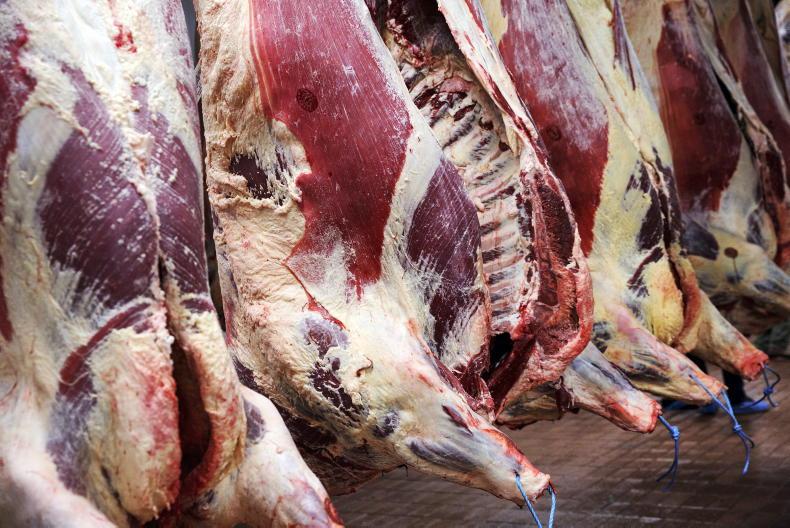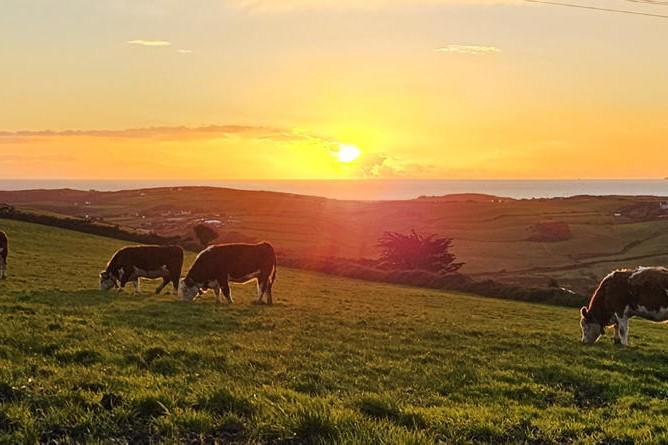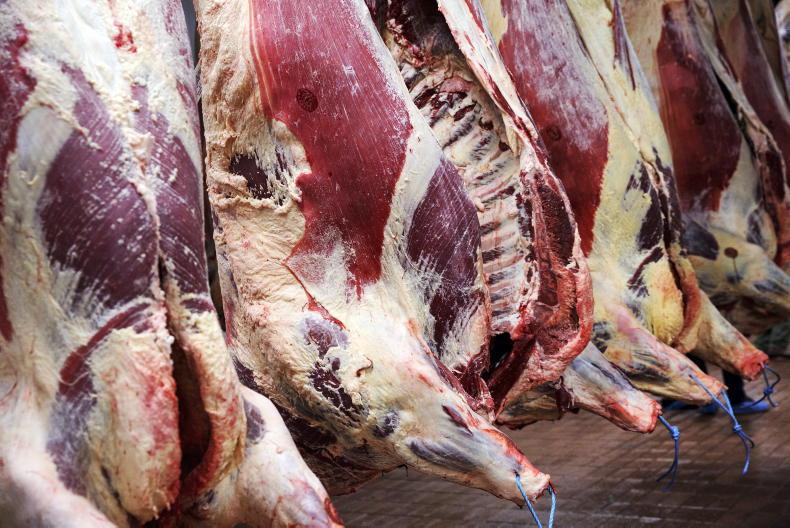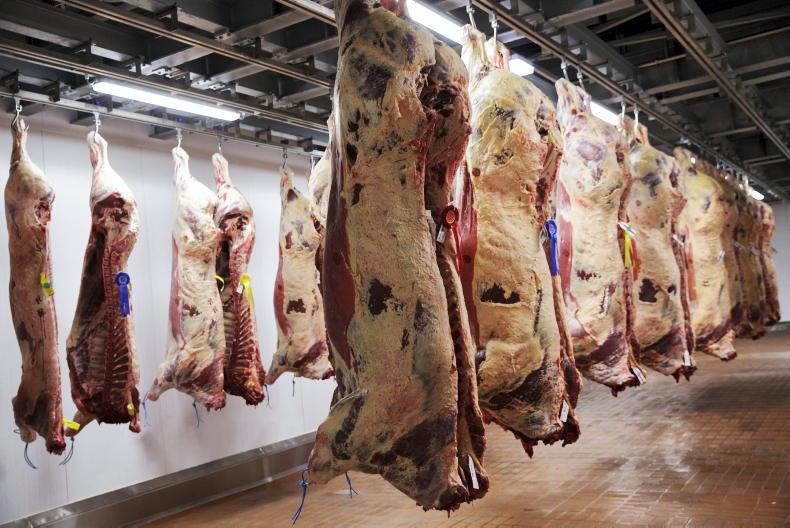Some factories tried to apply pressure to the beef trade on Monday morning, with talk of a 5c/kg cut to quotes.
All cattle killed for the first half of this week were purchased at last week’s prices of €4.15/kg to €4.20/kg base for bullocks and €4.20/kg to €4.25/kg for heifers.
Speaking to agents on Monday, it looks like farmers will be fit to weather the current play from factories and hold out if quotes are reduced.
Weather conditions and ground conditions are still good across much of the country and this will play into farmers' hands, as grass cattle will be under no pressure to come off the land.
The latest move from factories comes as the big three look set to fill their feedlots ahead of the winter in the coming weeks.
This always coincides with a concerted effort to pull quotes to bring store cattle prices back in line.
Bull trade
Bulls are working off €4.10/kg to €4.20/kg for R grading bulls, with 5c to 10c/kg extra going for U grading bulls.
Younger under-16-month bulls are working off €4.10/kg to €4.15/kg on the grid.
Cow trade
The cow trade remains steady, with R grading cows still hitting €3.85/kg to €3.90/kg, with U grading cows making 5c to 10c/kg more.
O grading cows are also still strong, with €3.70/kg to €3.80/kg being paid for fleshed cows.
P grading cows are generally being bought at €3.60/kg to €3.65/kg.
Average base grade price up last week
Steers increased by 0.6c/kg last week, up from 438.3c/kg in the last week.
ABP Bandon came in top of the pile last week for bullocks with an average base grade (ABG) of 449.7c/kg, while Dunleavy Meats Mayo cmme in at the bottom on 418.1c/kg.
Heifers increased by 1c/kg to 443.4c/kg for last week, up from 442.4c/kg for the previous week.
Jennings Ballinrobe came in top of the pile for heifers last week, with an ABG of 458.4c/kg, while Dunleavy Meats Mayo came in at the bottom on 425.4c/kg.
World prices
Around the world, beef markets have continued to improve in recent weeks, with the exception of Brazil.
Exports to China from Brazil were banned three weeks ago and, as a result, Brazilian beef prices have fallen back to just over €3/kg.
Prices in neighbouring countries Uruguay and Paraguay have hardened in recent weeks, reflecting the issues in Brazil.
Australian cattle prices have continued to improve, with Australian beef farmers set to gain most as a result of the Brazilian beef import ban in China.
This is also aided by a strong domestic demand, which has helped fuel prices. Australian beef is up there with some of the best prices in the world at the moment.
The USA has also seen prices improve in recent weeks. This has been fuelled by strong domestic demand and a strong export trade to Japan and wider Asia.
Cattle supplies in the USA are expected to remain tight for the remainder of the year.
Some regions in the states have been affected with severe drought and this has led to some producers selling off cattle as a result.
Closer to home, the British beef market continues to perform very well, despite the recent well-publicised challenges around getting workers for the industry and the supply of CO2 gas, which is used to maximise the shelf life of meat in retail packaging.









SHARING OPTIONS